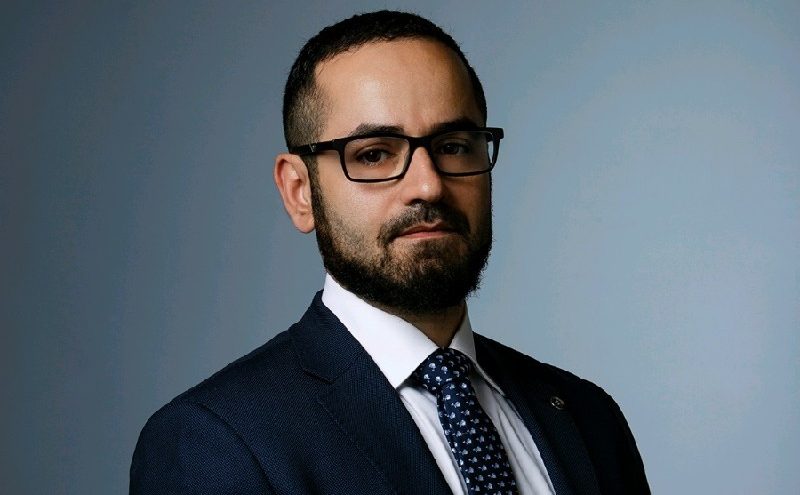EXCLUSIVE: Kennedy Ekezie-Joseph discusses how Kippa is helping African SMEs to manage their finances
Kennedy Ekezie-Joseph is arguably one of the youngest Chief Executive Officers in Africa at the moment. Last year, he co-founded Kippa alongside Jephtah Chidozie-Uche and Duke Ekezie-Joseph. And shortly afterwards, the company announced a pre-seed funding round to the tune of $3.2 million.
In this interview with Business Insider Africa, he discusses some of the remarkable developments that have taken place since the fundraising. Enjoy the conversation.
BI Africa: Congratulations on your recent $3.2 million pre-seed fundraising. Can you take us through some of the remarkable developments that have taken place at Kippa since finalising the round?
Kennedy Ekezie-Joseph: We have focused on two important things: continued development of product and technology to deliver value to merchants, and growing our global team with the most talented people. When we think about it, building technology that solves problems is only possible at the intersection of these two things. More importantly, we are able to think of bigger, scaled-up products, and that’s critical when we are trying to accomplish such audacious goals.
BI Africa: For the benefit of some of our readers who may not know you, could you tell us a bit more about what Kippa does?
Kennedy Ekezie-Joseph: Kippa is a full service finance management solution built for small businesses in Africa to manage their business finances. Merchants use Kippa to record their daily income and expense transactions, manage their inventory, and automate the debt recollection process.
Before building the company, we travelled across Nigeria and realised that on a foundational level, these are the biggest reasons why small businesses in Africa remain small and don’t scale. 95% of small businesses in Nigeria (our primary market) die in the first 5 years – building generational businesses is not the norm in our part of the world. In trying to solve that problem, we also discovered the need for ease in accepting payments and selling to more customers for this category of businesses, so we are also working on products to solve these problems.
BI Africa: How did you come up with the idea for Kippa? Is there any particular problem you set out to solve?
Kennedy Ekezie-Joseph: Before we started Kippa we took a trip around our country, Nigeria. We visited merchants in different states to understand how they interacted with finances in business. The result was the presence of a unique opportunity to cater to a previously ignored segment.
When we started out, we wanted to help small businesses run more profitably and sustainably. African businesses operate informally and this lack of structure allows businesses to lose millions of dollars every year. Unpaid debt mishandled records and poor inventory management means these businesses are unable to grow like businesses in other parts of the world.
BI Africa: Kippa has been around for less than a year and still has managed to record significant success. What would you say are some of the factors driving the company’s growth?
Kennedy Ekezie-Joseph: The most critical success factor is the intimate, candid understanding of the needs of our users, and the consequent speed at which we innovate for small businesses in Africa. Traditionally, these businesses are ignored and shut out of the current financial system. We see this as an advantage for us, because it provides us room to build more infrastructure and solutions for them, consequently making us more powerful at scale.
BI Africa: In view of the presence of other software as a service apps across Africa, what would you say stands Kippa out?
Bi Africa: Which other African countries, besides Nigeria, is your service currently available in?
Kennedy Ekezie-Joseph: Currently, we are only available in Nigeria and that’s because it’s such an important market to solve for and one of the best representations of the African market. However, as we consolidate our momentum in Nigeria, expansion to other African markets will become priority.
BI Africa: Talk us through your growth projections/forecasts. Where do you see Kippa in the next 3 to five years?
Kennedy Ekezie-Joseph: Our goal is to build the integrated end-to-end software stack and be the #1 provider of essential tools and services for small businesses in Africa. In 5 years, we want every small business to be running on Kippa-built software or using one or more of our services.
BI Africa: As a young tech founder in Africa, what has the experience been like for you and what advice do you have for other young, aspiring tech entrepreneurs?
Kennedy Ekezie-Joseph: Building a company has provided me the single biggest opportunity to scale myself. It’s one thing to set out to solve such an ambitious problem, it’s another thing to lead a team to amplify the execution on a bigger scale than when you set out. My advice is probably cliche, but there is a reason certain things are cliche: as a young aspiring entrepreneur, spend time figuring out if this is the best way for you to create an impact in the world. Usually the best way to do so would be by working at a fast-growing startup. Furthermore, surround yourself with smart and talented people with who you can have fun with as you build and grow. A combination of grit, back-of-brain motivation and technical competence scale your ability to successfully build and grow a startup.













